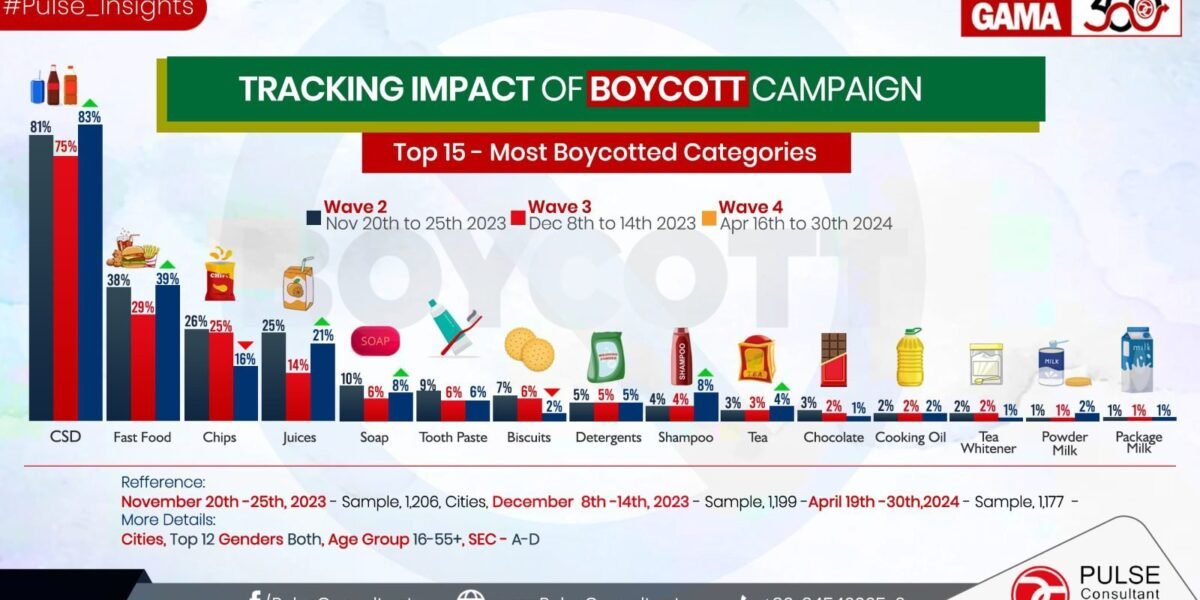WEB DESK: According to Pulse Consultants, the act of boycotting multinational corporation (MNC) products in Pakistan has risen from 60% to 65%. This change in consumer behavior marks a significant transformation in the market, prompting a call for close attention and analysis.
Notably, among those endorsing the #Boycott movement, the proportion claiming a practical approach has notably escalated from 68% in the preceding wave to a striking 84% in the April-May period, indicating a remarkable increase of 16%.
Categorically, the impact is evident across various sectors: Carbonated Soft Drinks (CSD) remain at the forefront of the boycott movement, with 83% of respondents in April-May 2024 reporting their abstention, up from 75% in December 2023, marking an 8% increase.
The influence of Fast Food has also seen a significant uptick, with a reported boycott rising from 29% in December to 39% in April-May, reflecting a 10% surge.
Juices have witnessed a negative impact as well, with a 7% increase in reported boycotts, now standing at 21% compared to 14% previously.
Moreover, Soaps, Shampoos, and Tea are now facing mounting pressure from consumers.
Read More: KP govt announces 900% tax hike on tobacco
Conversely, the impact on Chips, Biscuits, Chocolates, and Tea Whiteners has experienced a reduction.
Notably, Detergents, Toothpaste, Cooking Oils, and Packaged Milk appear to have remained largely unaffected by the boycott movement.
The evolving consumer sentiments and the rising tide of boycotts against MNC products post-Ramadan and PSL underscore a significant shift in Pakistani consumer behavior, with potential ramifications for both local and global markets.















